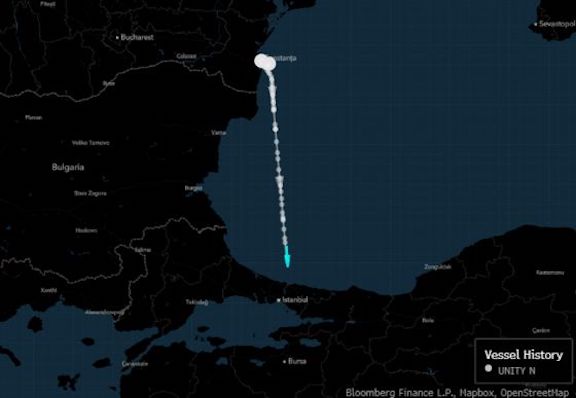Enough grain has made its way out of Ukraine to fill an export vessel in neighboring Romania, marking a small but important first step toward easing the backlog of crops the war has left piled up at home.
The panamax vessel Unity N departed early Friday from Constanta port, loaded with 71,000 tons of Ukrainian corn, said Viorel Panait, general director of Comvex, which operates two terminals there. It is bound for Spain and further cargoes are planned for early and mid-May, he said by phone.
Russia’s invasion of Ukraine has shut most of the country’s ports. That’s dealt a huge blow to its agricultural sector, which typically ships about 5 million to 6 million tons grain per month for Asia, Africa and Europe. The slowdown from one of the world’s biggest grain and vegetable oil suppliers has sparked worries of a worsening global hunger crisis, and nearby nations from Bulgaria to Romania and Lithuania have pledged to help ease the crunch.

“We need to help and we want to do so,” Panait said.
The cargo departing Romania shows such moves are working, although logistical hurdles still abound. For example, railway sizes differ between Ukraine and the European Union, requiring wagons to swap wheels or unload at the border. It took about three weeks to accumulate enough Ukrainian grain via trains and barges for the initial cargo, Panait said. That speed is improving, while further infrastructure development is needed.
Lithuania was also planning to transport a test cargo of Ukrainian grain to its Klaipeda port, its transport minister said this week.
Ukraine’s next harvests will be smaller than usual because of the war, but the country still has millions of tons of last year’s crops to sell. Crop shipments by rail in April have been running at about half the maximum capacity, amounting to about 10% of typical seaborne trade, data from the Ukrainian Agribusiness Club show.
Without a pickup in volumes, farmers will lack funds for seeds and other inputs needed for the next winter-crop plantings, which start as soon as late summer. That risks curtailing harvests of major staples like wheat in 2023, too, Kateryna Rybachenko, chief executive of agribusiness Agro-Region Ukraine said on a webinar Thursday.

Follow us on social media: